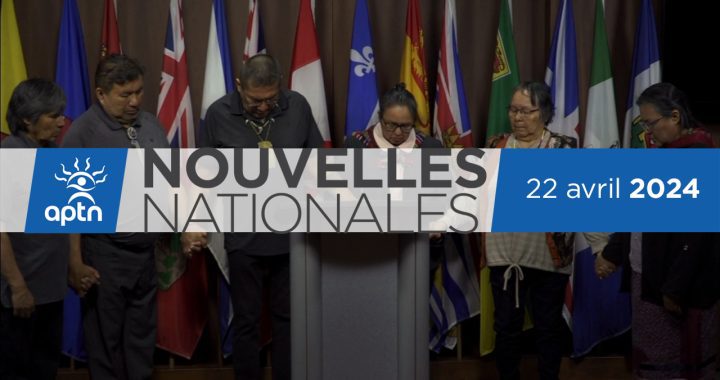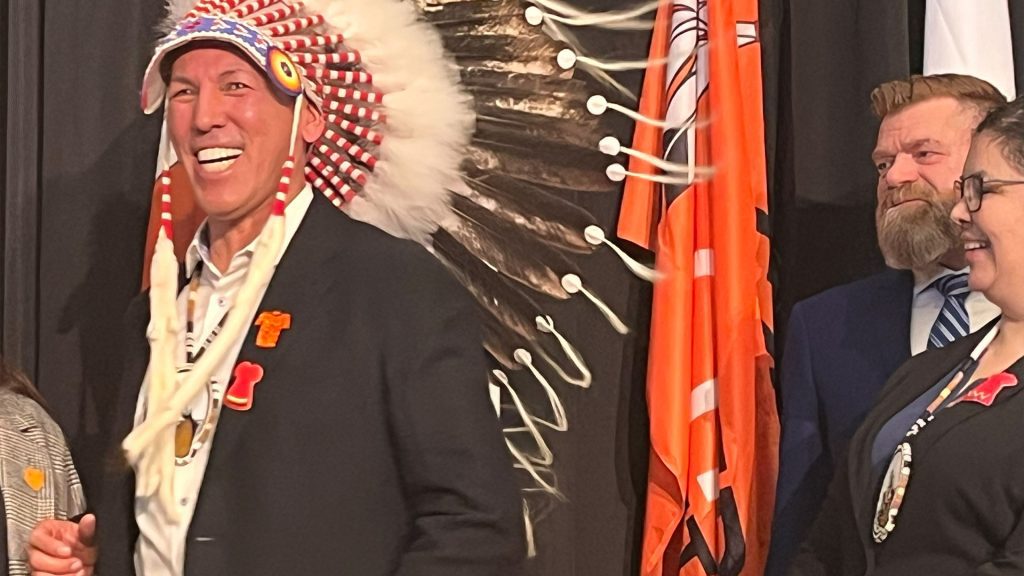
Fort McKay First Nation announced a memorandum of understanding with Suncor Energy to explore a tarsands lease development on the Nation’s lands.
“Today is about bringing economic growth and employment to Fort McKay First nation. It is also about protecting the nation’s land, water and air,” said Chief Raymond Powder at a news conference in Edmonton on Thursday.
Exploratory work will take place on Lease 174C, which is on Fort McKay lands.
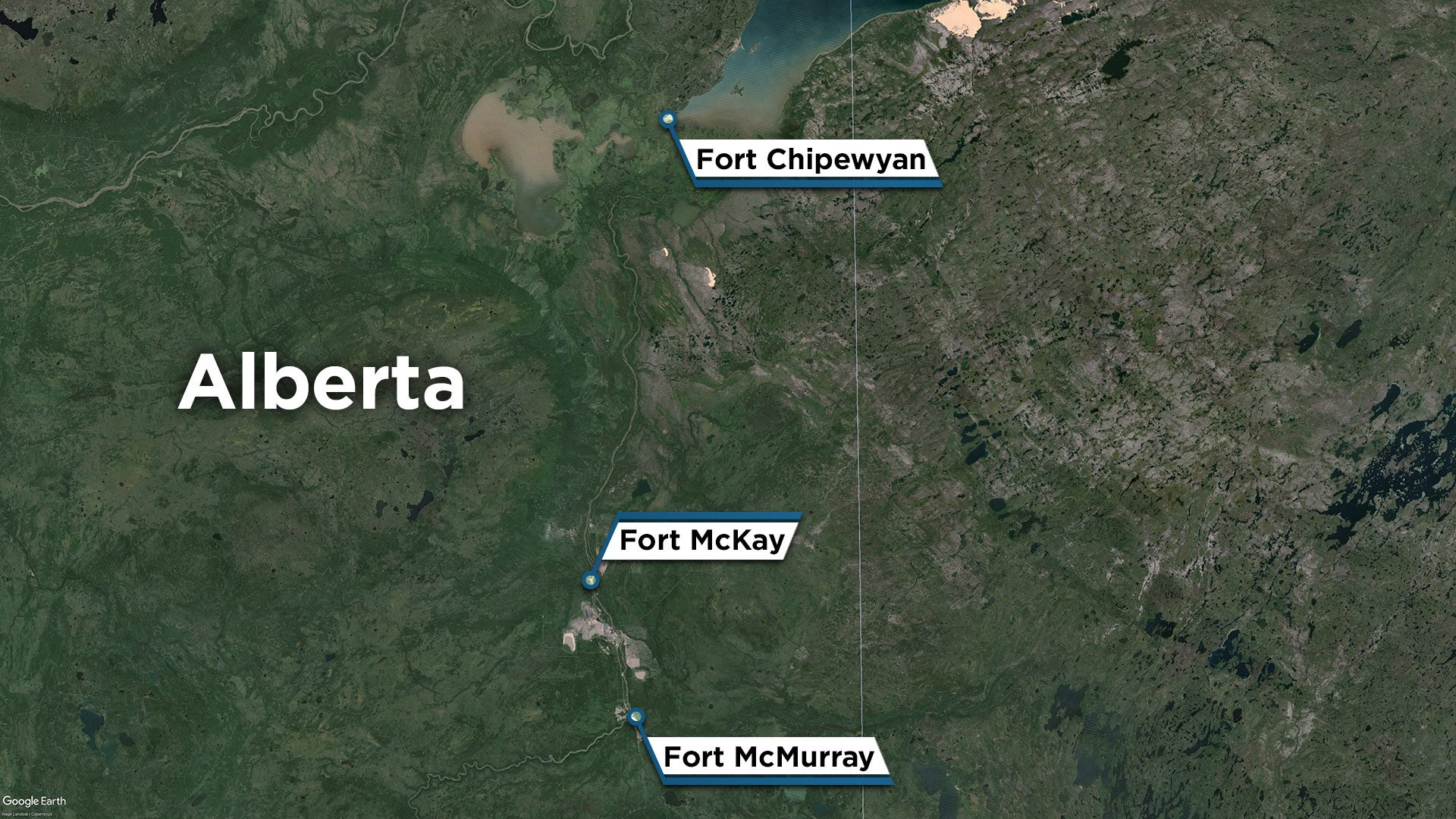
The announcement comes days after Athabasca Fort Chipeweyan First Nation Chief Allan Adam served the Alberta Energy Regulator, or AER with a statement of claim that asked for $500 million in damages for failing to notify the nation about a leak from a tailings pond belonging to Imperial Oil has been going on since at least May 2022 and continues today.
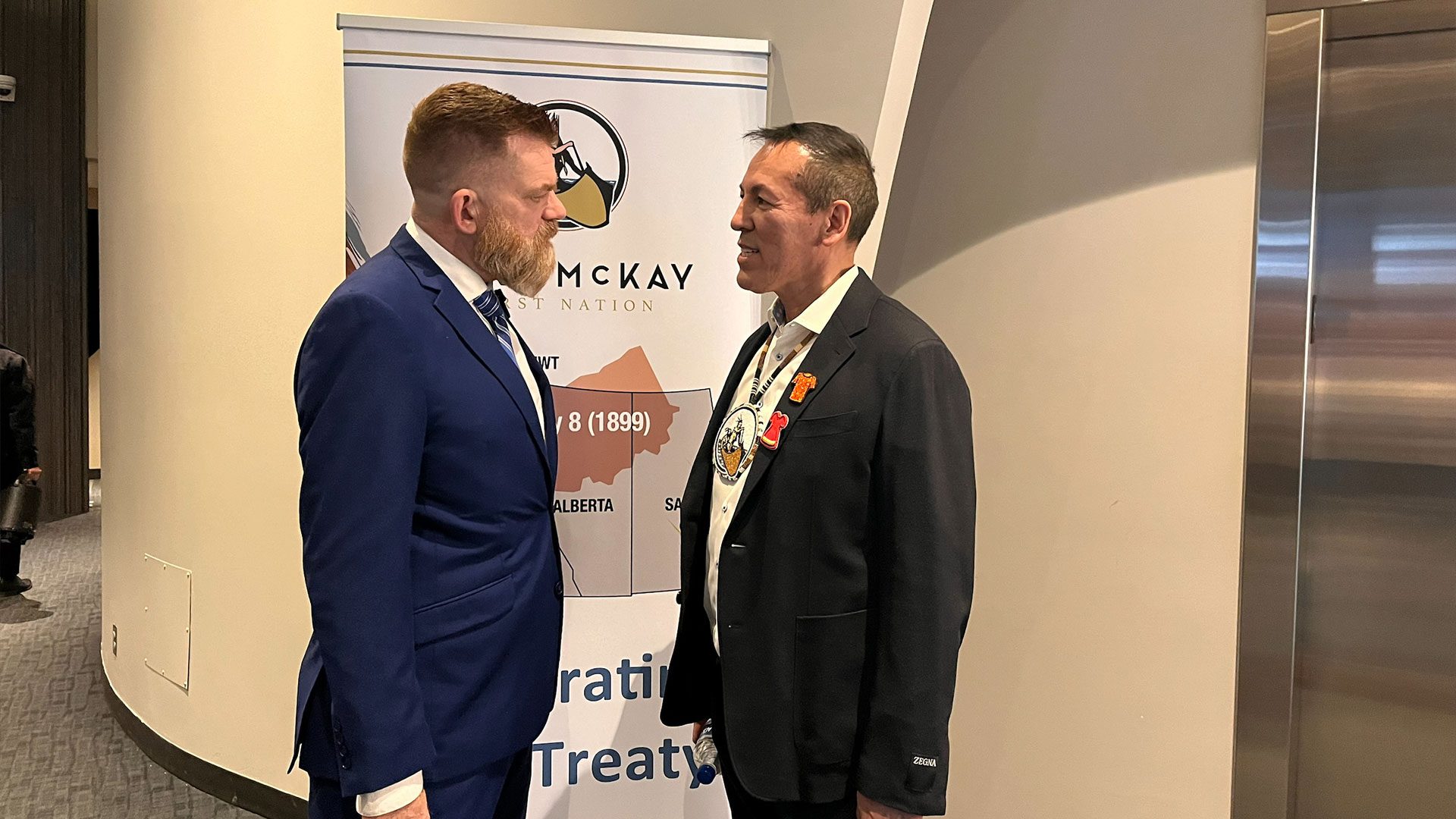
The water that has leaked from the tailings pond exceeds federal and provincial guidelines for iron, arsenic, sulfates and hydrocarbons that could include kerosene, creosote and diesel.
In 2022, Duncan First Nation announced a lawsuit against the provincial government for the destruction of their traditional way of life due to industry, agriculture and settlement in the area.
AER held an open meeting in Fort Chipewyan where members of the community spoke out against tarsands development.
Fort McKay is about 60 km north of Fort McMurray and is surrounded by tarsands development.
The proposed tarsand area is located within the regional municipality of Wood Buffalo in northern Alberta and on the Fort McKay First Nation’s traditional territory.
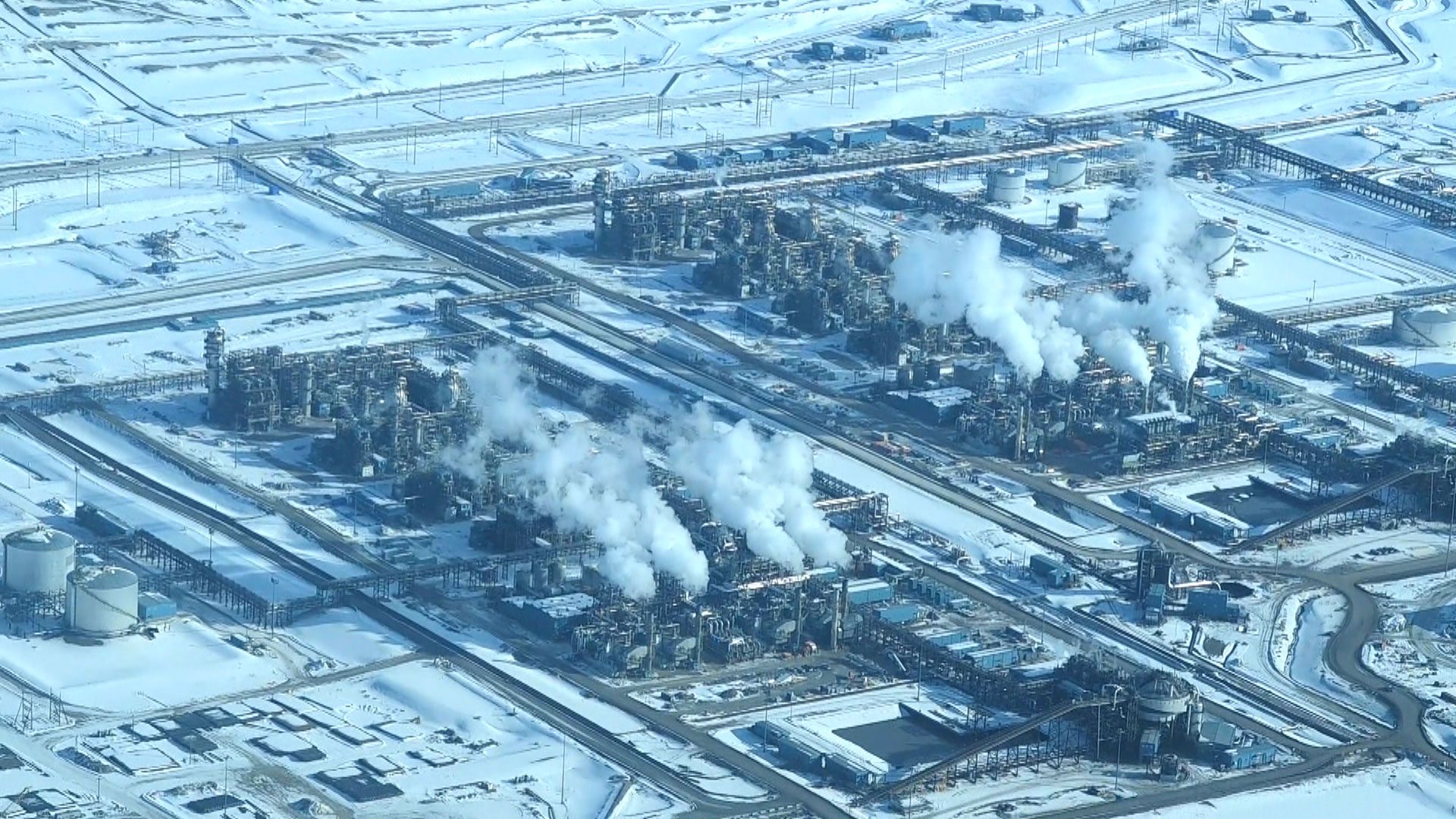
Jean L’Hommecourt member of Fort McKay First Nation spoke to APTN News on the phone after the press conference. L’Hommecourt was in Fort Chipewyan to speak against tar sands development earlier this week.
“It’s not just the [Fort McKay] nation I am worried about. It’s all nations downstream and in the region. We are all going to be affected. There is a water crisis right now,” said L’Hommecourt.
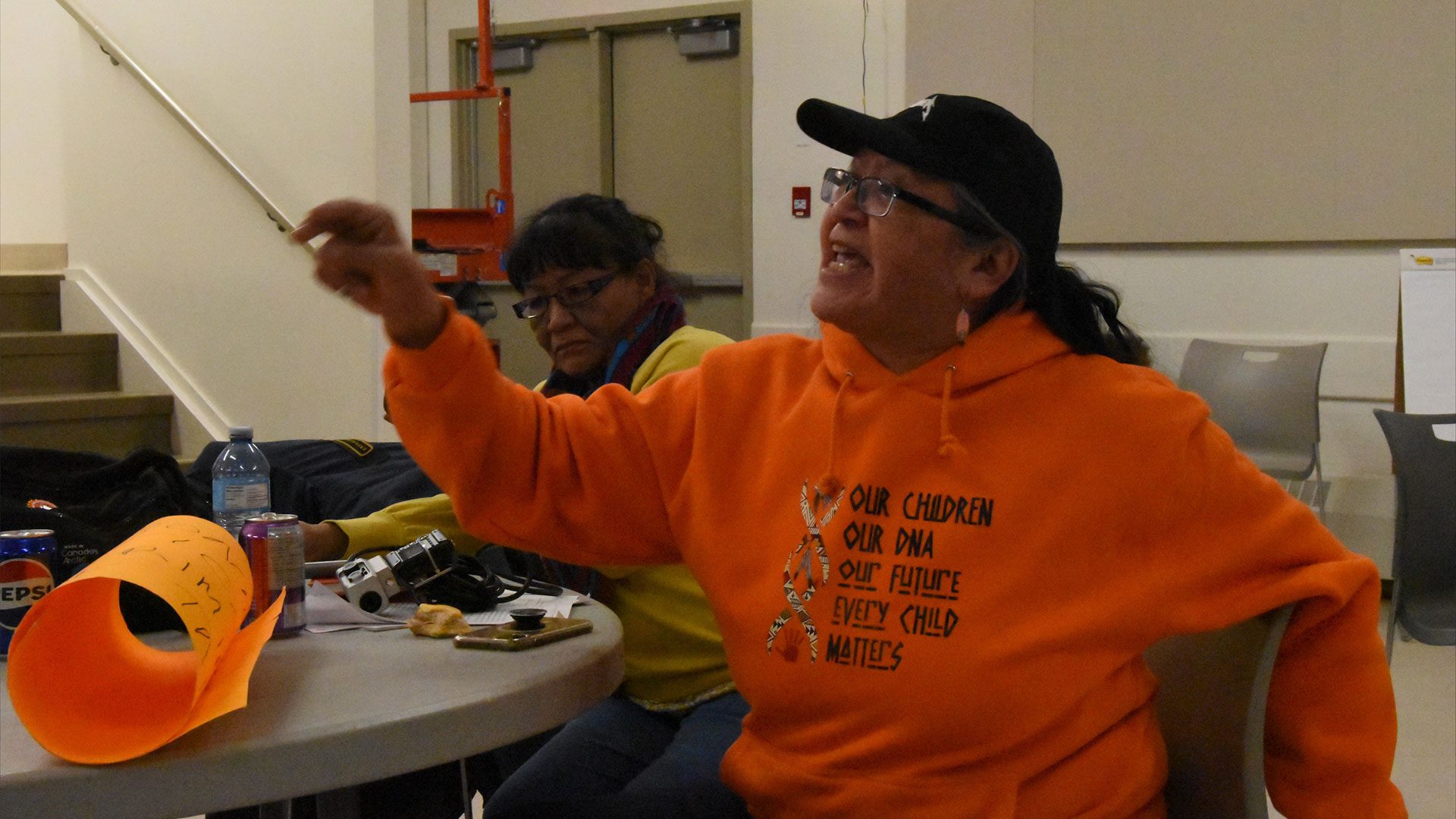
When asked about the lawsuit Powder said he would not comment on the sovereignty of other First Nations and that Fort McKay First Nation had notified other communities in the region about the tarsands proposal.
APTN asked Powder, in light of the concerns from their neighbouring community of Fort Chipewyan, what the Nation would do to ensure that there were not harmful affects to the community.
He did not answer the question directly, and instead said that “once the extraction begins … it will put us in the position to have authority,” in the mining process.
Powder added that there were environmental monitoring sites set up around the community.
The Alberta government was also present at the announcement.
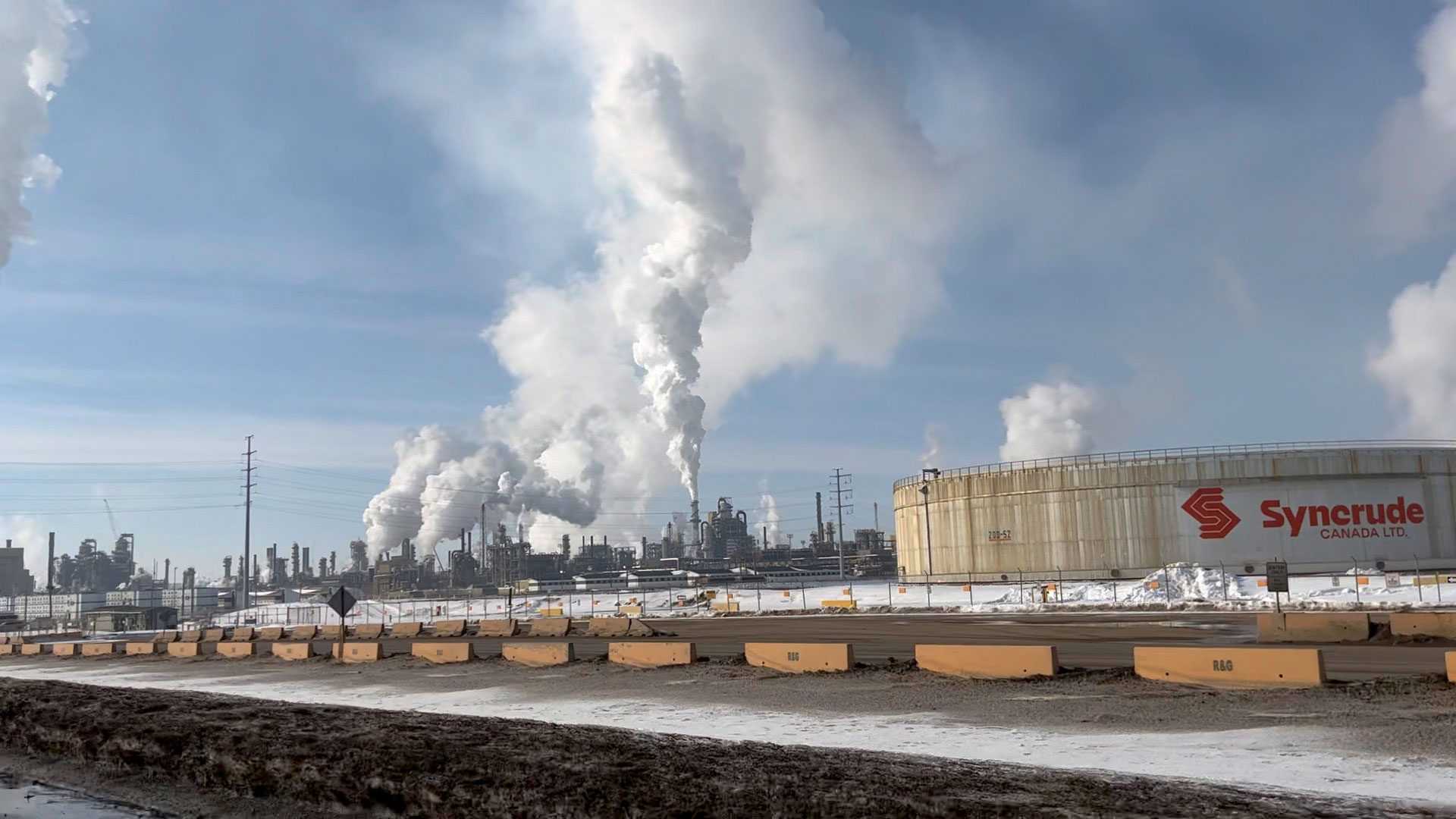
“Our government has often said that the world needs more Alberta energy and the world would be a better place with more Alberta energy,” said Alberta Energy Minister Brian Jean.
Jean became visibly emotional during the press conference.
“This is my family and economic reconciliation has been ignored for years,” Jean said when asked about his feelings.
When asked by reporters about the lawsuit from ACFN, Jean said that Alberta had one of the “best regulatory systems in the world.”
“The system works and that is why that nation can bring to the courts a challenge on the basis of what has happened,” said Jean.
Jean added that other jurisdictions in the world may not have the ability to serve a lawsuit.
“That’s great news. It means our regulatory system works…I am very pleased that they have the opportunity to have their day,” said Jean.
The Fort McKay First Nation said it supports Suncor’s commitment to achieving net-zero emissions from its oilsands operations by 2050, as well as the work of the Pathways Alliance oilsands industry group, which has proposed building a major carbon capture transportation and storage network in northern Alberta.
The burning of fossil fuels is the leading cause of the climate crisis.
With files from the Canadian Press






